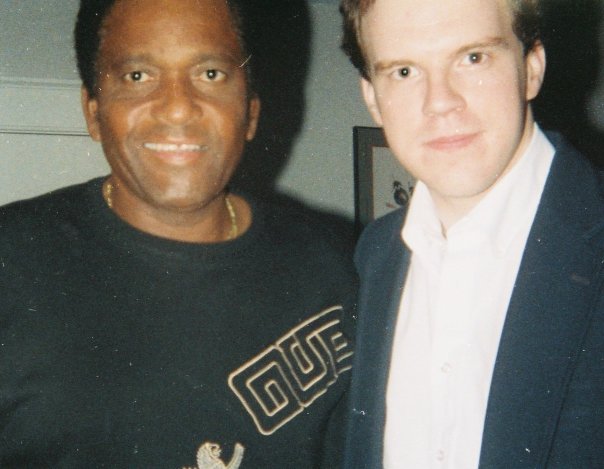Nashville, TN (TN Tribune)
By Paul Ladd
It’s a sad day in the music world, as Charley Pride has left us. Way back when I had the privilege of interviewing Mr. Pride for the Tennessee Tribune. I was excited because I had listened to him since I was a kid, had his records, and knew his songs. Came the day of the interview, I met him at his publicist’s office, where he and his wife had spent much of the day. I did my best not to seem too gushy or fan-boy, even though he was Charley Pride! Mrs. Pride, known as Rozene, seemed quite motherly. They were both so gracious. I remember the publicity photo for his latest album had an ethereal quality to it, and I remarked that it looked kinda heavenly. Mr. Pride said, “See? I told y’all it looks like I died!” After we exchanged greetings and chit-chat, we started for the conference room where we’d do the interview, and Mrs. Pride said very quietly but firmly, “I’ll just wait out here. You boys go on ahead and conduct your business.”
When we entered the conference room, I opened the case with the cassette recorder. I had borrowed my Dad’s fancy one that day because mine was on the fritz. Inside the case was a lapel mic with a badly tangled cord, and I wasn’t going to use it. Mr. Pride noticed it, and said, “Here, let me fix that.” He reached over for the mic, quickly untangled the cord, rolled it properly, and handed it back to me, after which we started the actual interview.
I asked Mr. Pride (I couldn’t call him Charley, because after all, he was Charley Pride!) about his current album, and then some of his previous work. He told me his hit, “Mississippi Cotton Pickin’ Delta Town,” was written by a fellow who lived not far from where the Pride family was in Mississippi, but they never met in those days because they were on different sides of the railroad track. Mr. Pride told me he sang country because he WAS country.
When he was a kid, Mr. Pride said he and his brothers got whipped by their father, a church deacon, for playing baseball. Deacon Pride considered baseball a sin. From his facial reaction, I could tell Mr. Pride didn’t get it, either.
As many of you may know, Mr. Pride went on to play professional baseball in the old Negro League. Their buses didn’t have radios, so he entertained his teammates with music on those long rides.
At one point, Mr. Pride thanked me for not asking him the tired question, “What’s it like to be a black country singer?” He said he wouldn’t mind answering it if people asked Eddy Arnold or Roy Acuff what it’s like to be a white country singer, adding that nobody ever had.
I had seen and read interviews where Mr. Pride was asked that question. I would NEVER have asked it, or even thought to do so. It’s rude and stupid, among other things. And I wouldn’t want Charley Pride to think I was a dope.
Mr. Pride said he wanted people to think more about what we all have in common, instead of worrying about what color we are, how much money we have, and all that. He told me, “When we get there, then we’ll be an AMERICAN nation.”
We talked more about music, and how he enjoyed singing, meeting fans, and all that stuff. By the time it was over, I felt as if we had known each other for a long time. After the interview, Mrs. Pride took this photo.
When I returned the recorder to my Dad, he opened the case and noticed the cord was no longer tangled. He asked if I untangled it, and I told him, as if it were no big deal, “Nah. Charley Pride did.”
A few years ago I was backstage at the Grand Ole Opry and came face to face with Mr. Pride. I said, “You probably won’t remember me, but…” He interjected, “You interviewed me for the Tennessee Tribune. That was fun!” We chatted for a moment or two and went our separate ways.


